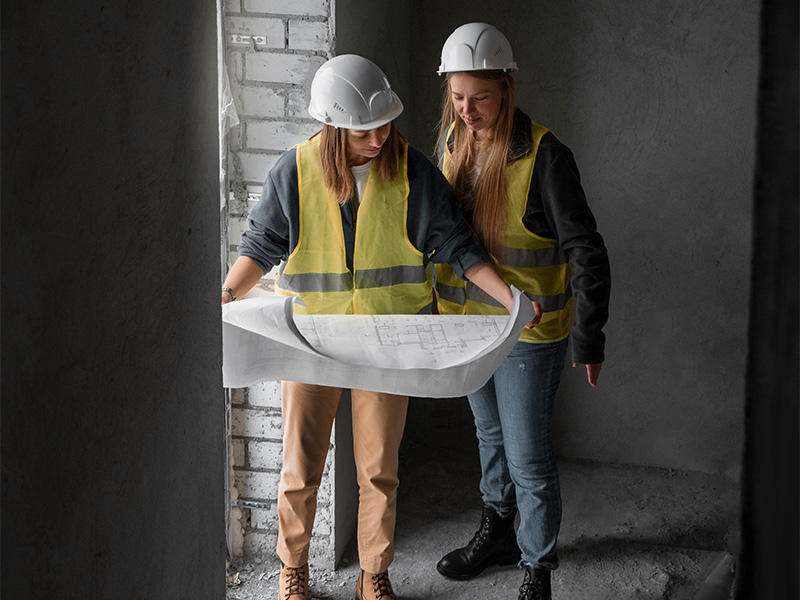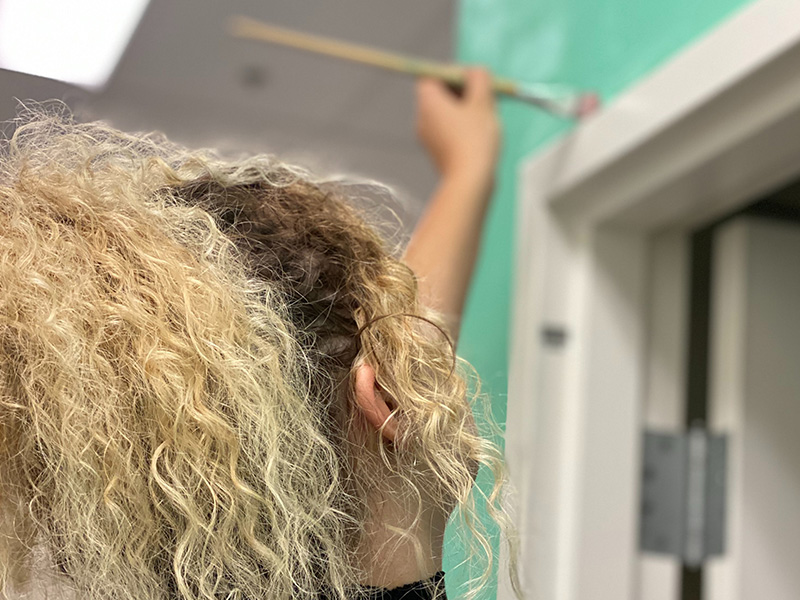
There aren’t enough women in construction.
Perhaps an obvious statement I know, but I feel I need to make it again for one very simple reason: it is still true. It’s almost impossible to put a date on when people first began to discuss the lack of gender equality in this field, but it was certainly a long time ago, and yet here we stand today, still talking about this issue.
To put it into perspective, data from the UCATT – the union for workers in the construction sector – has revealed that women make up only 11 per cent of the construction workforce and just one per cent of these are based on site – a considerable gap that shouldn’t still exist in this modern world. These figures are perhaps more startling when we consider the extensive talent shortage the industry is facing. A recent report by environment consultancy, Scape Group, found that skills shortages are at “breaking point,” with 85 per cent of respondents to a survey believing that the lack of available talent is negatively affecting the quality of projects.
So considering construction is facing a skills shortage, why is there still little progress in attracting half of the population?
Perhaps one of the most common suggestions is the stereotypical masculine environment. We all know that the industry is male dominated and given the scarcity of female role models in on-site positions it’s perhaps no surprise that few women choose this career path. In fact at a recent construction event the team attended, the lack of females was very noticeable.
Indeed, we’re not the only ones picking up on the scale of the industry’s stereotype. Sarah Sanders, Head of Client Services, The Clear Company, has witnessed this issue first hand in her work across the industry, including activity with Skanska:
“One of the biggest issues facing women in construction is the proverbial ‘glass ceiling’ they hit as a result of the predominant stereotype in the industry. Construction has always been heavily male dominated and the result of this is an unconscious bias in many of those making hiring decisions to choose men over women to recruit. For those females able to overcome this initial hurdle, the stereotype is so ingrained in the industry that working your way up the ladder – or in some cases, even getting your voice heard – is a huge challenge.
However, while there is the recognition that more needs to be done to encourage women into the industry and create a working environment that appeals to them, there is little acceptance from many hirers and employers that they are inadvertently responsible for building the very barriers they are trying to tear down. What firms in the industry need, in my view, is a wake-up call in the form of an unbiased review of their current culture and an honest opinion on how they are building a brick wall in front of female candidates.”
While Sarah’s suggestion that employers need to take a closer look at their hiring practices is certainly a must, we also feel that the industry itself needs a reputation boost with the future generation of talent. Given that this issue has been so predominant, it has almost become ingrained in the way we think that construction is for men and not women. It’s perhaps no wonder, then, that many girls at school level aren’t choosing a career in this field.
This is something I feel needs to be addressed.
The opportunities in construction are vast – whether the manual activity appeals to you, or technological solutions are your forte, or even if you thrive in problem solving and planning.
If we can remove this stereotype at education level, then I feel the industry will be developing longer term solutions to both the skills shortage and the gender imbalance. In fact, we’ve kicked off an initiative – #GirlsAllowed – where we will be visiting schools along with our influential contacts in the industry to help educate girls that construction isn’t just for boys.
What will happen in construction in the near future is anyone’s guess – particularly in light of the Brexit vote. But given the sheer scale of the talent shortage, no one in the industry can, in my opinion, turn a blind eye to the gender imbalance.
 About the author
About the author
Paul Payne is Managing Director and Co-Founder of One Way the specialist construction and rail recruitment firm. With over 15 years’ experience in the construction recruitment arena, Paul is highly passionate about growing the organisation and finding recruitment solutions for both clients and candidates across One Way’s specialist fields.
Paul is also an advocate of improving the external image of the construction industry and increasing interest in potential careers in the sector, particularly for women. It’s for this reason that Paul and One Way recently launched the #GirlsAllowed campaign which aims to bolster the number of female professionals operating in the industry.”








